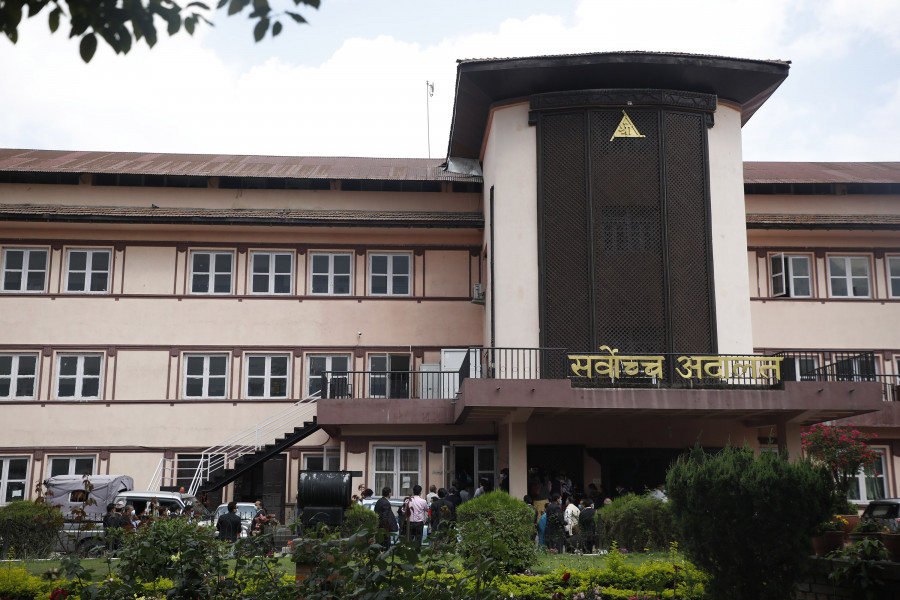National
Oli says government formation a political process and it cannot be decided by the court
In his response to the Supreme Court, Oli argues he dissolved the House after it could not give a new government.
Post Report
Prime Minister KP Sharma Oli on Thursday furnished a response to the Supreme Court, as demanded by the Constitutional Bench on June 9 with regards to his decision to dissolve the House of Representatives on May 21.
In his 18-point response, Oli has said that government formation is a political process and that it cannot be decided by the Supreme Court.
Oli has argued that Article 76 of the constitution vests the authority with the President to appoint the prime minister. Oli has also claimed that Article 76 (5) doesn’t allow the Parliament or the court to test whether someone holds a majority.
“The court has the authority to interpret the constitution but it cannot play the role of legislature or executive,” said Oli in his response. “Forming governments on the basis of parties is the fundamental characteristic of the parliamentary system. Our constitution has not imagined party-less practices. If we run the Parliament and government as demanded by the petitioners, this could revive a party-less system like Panchayat.”
Oli has said the claims by the writ petitioners are against the basic spirit of the constitution and democracy.
As many as 146 lawmakers of the dissolved House of Representatives on May 24 filed a petition against Oli’s May 21 decision to dissolve the House and demanded that Nepali Congress President Sher Bahadur Deuba be appointed a prime minister.
On May 21, Deuba had submitted signatures of as many as 149 lawmakers before President Bidya Devi Bhandari, requesting her to appoint him the new prime minister as per Article 75 (6). As many as 29 members of the Madhav Nepal faction of the CPN-UML had provided their signatures in support of Deuba.
But Oli too laid claim to the government, saying he had support of 153 lawmakers.
But Bhandari said both claims by Oli and Deuba were insufficient. Consequently, the Oli government recommended the dissolution of the House and midterm elections for November. Bhandari endorsed the recommendation.
In his response, Oli has also argued that both the constitution and the Political Parties Act-2017 do not allow members of any party to go against the decisions of their parties.
Oli has also asked what will be the status of his UML party–ruling or opposition–if Deuba becomes the prime minister with the support of lawmakers from his party.
“If the court endorses the demand of the petitioners, what would be the status of UML and Janata Samajbadi Party?” Oli has asked. “A party cannot be a ruling as well as an opposition party simultaneously.”
While a section of the Janata Samajbadi has stood in support of Oli, the other faction is supporting Deuba.
As many as 12 members from the Janata Samajbadi Party had provided their signatures in support of Deuba.
Oli has also claimed that since two parties, the UML and Janata Samajbadi, had extended support to him, he expected to be appointed the prime minister as per Article 76 (5).
In an attempt to justify his House dissolution, Oli has said that there was no possibility of forming an alternative government after the President rejected claims by both him and Deuba. The same situation still continues, he said.
“I decided to recommend the dissolution of the House as per article 76(7) after there was no condition to form a new government as per article 76(5), which the President has also stated,” said Oli in his response presented to the court through the Office of the Attorney General.
After listening to opening remarks from lawyers from the plaintiffs, the Constitutional Bench on June 10 had directed the defendants, including Oli, to present in writing the reasons for dissolving the House.
The final hearing will begin on June 23.




 16.12°C Kathmandu
16.12°C Kathmandu













